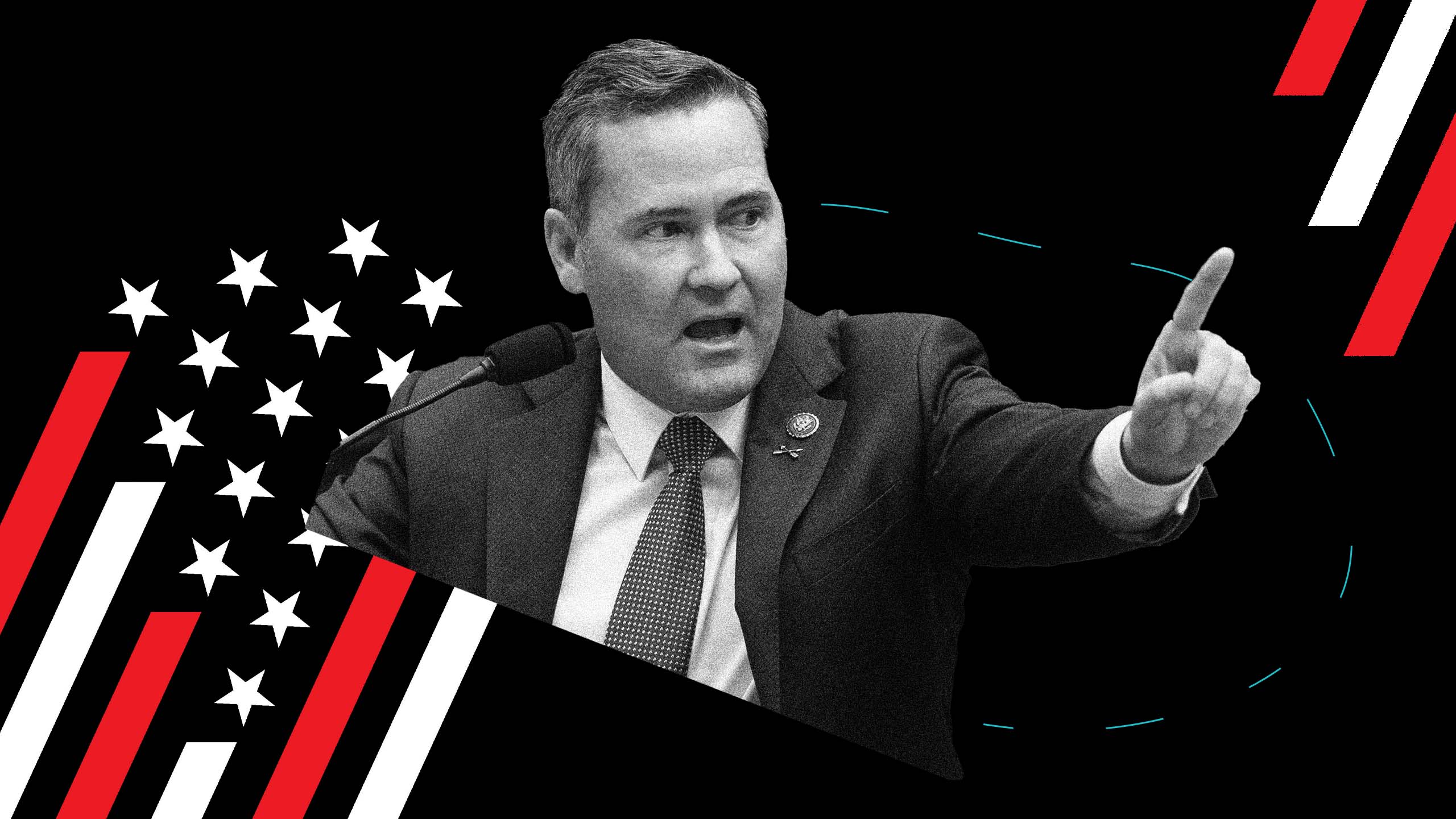More than 30 Republicans in the U.S. House of Representatives are backing new legislation proposed this week that would broadly target the LGBTQ2S+ community in a way that emulates Russia’s 2013 “gay propaganda” law.
Rep. Mike Johnson, (R) Louisiana, introduced the “Stop the Sexualization of Children Act” on Tuesday, to “prohibit the use of federal funds to develop, implement, facilitate or fund any sexually oriented program, event, or literature for children under the age of 10.”
While it may be inspired by Florida’s so-called “Don’t Say Gay” law, which bans instruction on sexual orientation and gender identity in classrooms, Johnson’s bill extends prohibitions beyond schools.
As written, his measure, which has 32 Republican co-sponsors in the House, would bar federal funds from being used to support “any ‘sexually oriented’ programs, events and literature at any federal facility or any institution receiving federal funding.” Critics note that in its description, the bill makes a direct connection between sexual orientation and gender identity with sexualized content, such as pornography and stripping, which are far more commonly associated with cisgender heterosexuals.
The bill also specifies that parents and guardians can sue government officials, agencies and private entities if they “expose” a child under 10 to such materials.
At a news conference Tuesday, Johnson complained about what he called “newly implemented sexual education curriculums” that he claims are introducing lessons on “sexuality, sexual orientation, transgenderism and gender ideology as early as kindergarten.” With his proposal, the Louisiana Republican is also targeting drag queen story hours in libraries, calling them “sexually oriented.” Johnson has already automatically been re-elected to a fourth term as he faced no opponent.
Legal advocates for the LGBTQ2S+ community denounced the bill as “dangerous” and designed to generate hate.
“This is about scapegoating and stigmatizing a vulnerable minority group by saying outrageous things that even a year ago would have been unthinkable,” Shannon Minter, the legal director of the National Center for Lesbian Rights, told Xtra. “It’s designed to distract attention from important issues, important battles that we need to be fighting. It’s designed to rally the extreme base and to just further poison the political environment, the cultural environment. It’s trying to normalize saying vicious, hateful, untrue things about LGBTQ2S+ people. It’s very dangerous.”
“Extremist House Republicans like Mike Johnson are continuing their assault on LGBTQ2S+ Americans’ ability to live their lives openly and honestly,” said Human Rights Campaign government affairs director David Stacy, in a statement. “A federal ‘Don’t Say Gay or Trans’ bill—modelled after the controversial discriminatory law in Florida and aiming to drive LGBTQ2S+ families and teachers out of the education system—is their latest cruel attempt to stigmatize and marginalize the community, not in an attempt to solve actual problems, but only to rile up their extremist base.”
Alejandra Caraballo, the first trans woman of colour to teach at Harvard Law and a clinical instructor in the university’s Cyberlaw Clinic, sees broad implications in this bill, which she tweeted about this week.
“Universities, public schools, hospitals, medical clinics, etc. could all be defunded if they host any event discussing LGBTQ2S+ people and children could be present. The way they define ‘sexually oriented material’ simply includes anything about LGBTQ2S+ people … This is the American version of Russia’s gay propaganda law passed in 2013. This is their endgame. To censor and ban LGBTQ2S+ from all public life and force them back into the closet,” she tweeted.
Ironically, Russian lawmakers met just this week to expand and toughen their own anti-LGBTQ2S+ law.
Even though the bill is unlikely to pass in the U.S. Congress before or after next month’s midterm elections, observers note President Biden would surely veto it, and there’s no indication of sufficient support for an override. However, Caraballo warns this bill could serve as a blueprint for action by state Republican lawmakers across the country.
“This could be a model for state legislation next year,” she tells Xtra. “I highly believe that next year’s state legislative cycle could be the worst for LGBTQ2S+ people in modern history, with attacks not just on gender-affirming care or bathrooms or sports. It’s going to be bans on drag, bans on LGBTQ2S+ people, in ways that, in part, insinuate that LGBTQ2S+ people are a threat to children and families. From that aspect, I think this serves as a terrible precedent. This could even serve as a model for [Florida Gov. Ron] DeSantis if he were to become president in 2025.”
However, Minter cautions against giving this proposal too much attention, though he notes that it’s “an extremely alarming sign about the daily deterioration of our democracy.
“I think getting enmeshed in the details and analyzing it as though it’s a serious piece of legislation is not very helpful,” he says. “This is not the time for a lawyerly analysis of what this bill would do. It’s not what this is about. It’s about scapegoating, spreading hate, spreading lies. It attempts to frighten people. It attempts to revive vicious stereotypes about LGBTQ2S+ people that they are sexual predators, that they pose a threat to children.
“The point is the hate. The point is spreading hate. And this bill should be yet another wake-up call to anyone on either side of the political aisle, at any point in the political spectrum, for people who still believe in our democracy, that we are losing our country to this kind of hateful extremism and just unchecked fear-mongering.”


 Why you can trust Xtra
Why you can trust Xtra


